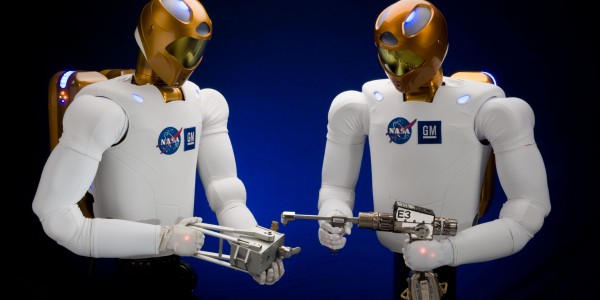When it comes to robots, there seems to be two schools of thought. You have those that believe that more automation leads to fewer jobs for humans, and then you have those who believe that more automation leads to more jobs for humans. This is a discussion that has been going on for years. Will the efficiency and work rate of robots simply replace human workers, or will the benefits of robots open doors for humans?
There’s been this fear of robots taking jobs in the U.S. for some time now, and a new report claims as many as half of the jobs in Germany could become automated. The biggest problem with this fear is that it is based on the assumption that people will be content with sophisticated robots and lose all drive. No more innovation, no more improvements. We will have reached the apex of manufacturing and human civilization as we know it, and we can all sit around and enjoy life until we die. The world will be the exact same as it is now, only robot servants carry out all tasks.
That’s not going to happen.
There are two things to keep in mind about how automation will affect human jobs. The first is that robotics and automation are going to be an integral part of everything. The Obama administration has invested $70 million in robotics research, and the European Union is putting $4 billion towards robotics. There is no doubt that technology is heading in that direction.
The second thing to consider is that people are resilient. Instead of sitting by the wayside and simply watching robots abscond with their jobs, people will find new jobs, either independent of or in relation to robotics. The more robot and automation technology advances, the more applications there will be, and more jobs will be created.
It’s pessimistic to think that robots will remove jobs, and while you could argue that it’s pure optimism to think that robots won’t ruin the job market for humans, history has already played out this scenario once before. The first Industrial Revolution had the population in a fervor, yet here we are today with plenty of jobs for humans. Machines didn’t get rid of the need for human workers, they created new jobs.
